Family Medicine, an official journal of the Society of Teachers of Family Medicine, aims to publish high quality, original scholarship about education in family medicine and primary care. The journal publishes original research, systematic reviews, narrative essays, and policy analyses relevant to the discipline of family medicine, particularly focusing on primary care medical education, health workforce policy, and health services research. The journal does not publish clinical review articles.
Family Medicine is relied on by more than 5,000 family physicians, psychologists, sociologists, and public health specialists for the latest research and commentary on medical education.
Family Medicine is indexed in Medline, PubMed, MEDLINE, EBSCO, EMBASE, Health and Psychosocial Instruments, Current Contents®/Clinical Medicine, Science Citation Index, and select articles from the Educational Resources Information Center Clearinghouse on Higher Education.
ISSN (Online): 1938-3800
ISSN (Print): 0742-3225
2022 JCR Impact Factor: 2.24
Editorial Team
-
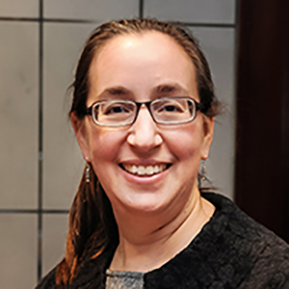
Sarina Schrager, MD, MS
Editor-in-Chief
Sarina Schrager, MD, MS, is a professor in the University of Wisconsin’s Department of Family Medicine and Community Health (UW DFMCH). She also serves as UW DFMCH’s director of promotions and mentoring and as Wisconsin Research and Education Network’s medical director. Prior to becoming the editor in chief of Family Medicine, she served in the same capacity at Wisconsin Medical Journal, as an editor for FPM, and on the editorial board of the Journal of the American Board of Family Medicine. Her research expertise is in residency education and faculty development, and her recent work has focused on shared decision-making in cancer screening. She obtained her MD at the University of Illinois, Chicago, her residency training as well as a primary care women’s health fellowship at MacNeal Hospital, and a faculty development fellowship at UW DFMCH.
-

Arch Mainous, III, PhD
Deputy Editor
Arch Mainous, III, PhD, is a professor in the University of Florida’s Department of Health Services Research, Management, and Policy and Department of Community Health and Family Medicine, in which he also serves as vice chair for research. His current research foci are patient-physician relation and trust, better detection of disease in primary care, and delivery of care in Haiti. The US Department of State has funded his research on improving nutrition in Haiti prisons, and the ICAN Foundation has funded his project on evaluating the elementary school exercise program, Daily Mile. He received his PhD from The University of Texas at Austin.
-

Octavia Amaechi, MD
DEIA Editor
Octavia Amaechi, MD, serves as the chief of staff, a hospitalist, and Health Equity Committee chair at the Spartanburg Regional Healthcare System and as a faculty physician in the Spartanburg Regional Family Medicine Residency (SRFMR) program. She holds positions as a mentor in STFM’s Leadership Through Scholarship Program, a board member of the Spartanburg County Medical Society, an annual delegate and reference committee chair of the South Carolina Medical Association, and member of the South Carolina Academy of Family Physicians Committee on Diversity, Equity, and Inclusiveness. Her expertise is in diversity, equity, inclusion, antiracism, patient and community advocacy, inpatient/hospital medicine, and MAT for Opioid Use Disorder. She completed her MD at the University of Health Sciences Antigua, her residency training at SRFMR, and a hospital medicine fellowship at Spartanburg Regional Healthcare System.
-

William Cayley, Jr, MD, MDiv
Editor, Book and Media Reviews
William Cayley, Jr, MD, is an adjunct clinical professor at the Medical College of Wisconsin and the University of Wisconsin School of Medicine and Public Health as well as a faculty at Prevea Family Medicine Residency at Augusta and Eau Claire. His expertise is in evidence-based medicine, cardiovascular disease, diabetes, and writing. He serves on the Cochrane Heart Group editorial team and the DynaMed editorial board. He completed his MD at the Medical College of Wisconsin and his family medicine residency training at the Prevea Family Medicine Residency at Eau Claire.
-
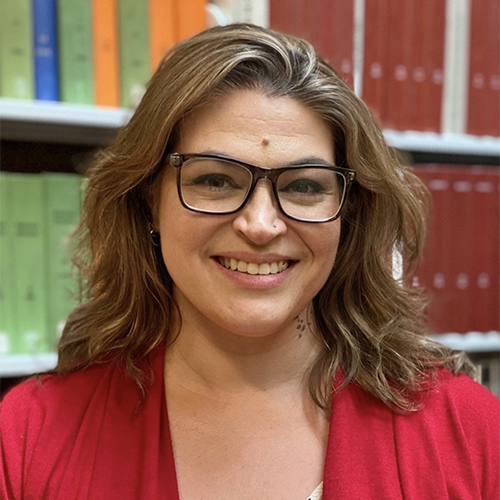
LaKesha Anderson, PhD
Associate Editor
LaKesha N. Anderson, PhD, is assistant professor of medicine and health professions education in the Center for Health Professions Education at the Uniformed Services University of the Health Sciences. She also serves as a lecturer in Johns Hopkins University’s Communication MA Program. A communication scientist, her work explores the intersections of communication, medicine, and education. Her research has examined topics including social support, miscommunication, credibility, trust, and information-seeking and her primary areas of interest include maternal and women’s health, medical education, and professional development. Dr Anderson earned a PhD in Health and Strategic Communication from George Mason University. She is also a certified doula, working to provide birthing people with holistic care that includes physical, emotional, and educational support both pre- and post-birth.
-
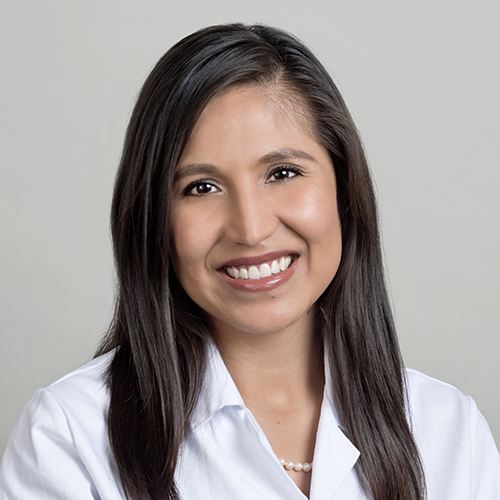
Yohualli Anaya, MD
Associate Editor
Yohualli Anaya, MD, is an associate visiting professor in the University of Wisconsin School of Medicine and Public Health in Madison’s Department of Family Medicine and Community Health. She also serves as faculty expert at the UCLA Latino Policy & Politics Institute (UCLA LPPI) and codirector of the UCLA Center for the Study of Latino Health and Culture Accelerating Latinx Leadership Institute. Her expertise is in educating preclinical and clinical learners in providing care to minoritized populations. Her research has been funded by UCLA LPPI and the California Health Care Foundation. Currently her work focuses on barriers to health and equity in health care delivery, physician workforce diversity, and the application of research to promote health equity policies. She completed her MD at the University of Southern California Keck School of Medicine and her residency training at the UCLA Family Medicine Residency Program.
-

D. Jason Frasca, DO
Associate Editor
Jason Frasca, DO, is an assistant clinical professor at Virginia Commonwealth University, where he also serves as the associate program director of the family medicine residency program. His expertise is in behavioral health, physician wellness, meditation- and mindfulness-based intervention, mindset/bias, teaching patient rapport and professionalism, and medical narratives. He completed his DO at the West Virginia School of Osteopathic Medicine, his residency training at Dwight D. Eisenhower Army Medical Center, and his medical editing fellowship at Society of Teachers of Family Medicine.
-
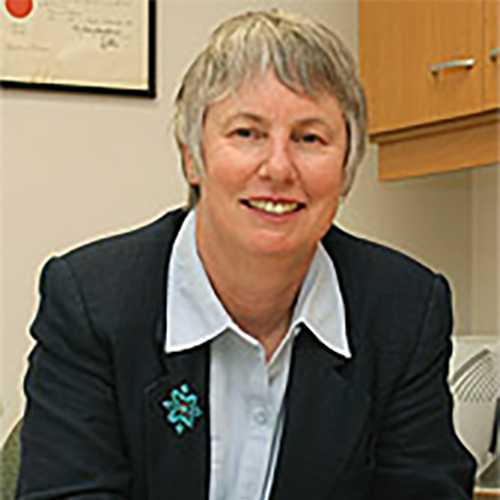
Valerie Gilchrist, MD
Associate Editor
Valerie Gilchrist, MD, received her MD from the University of Toronto. She attended a faculty development fellowship at the University of North Carolina-Chapel Hill, and the Hedwig Van Ameringen Executive Leadership in Academic Medicine Program. She is board certified in family medicine and has served as chair of family medicine at the Northeastern Ohio Universities College of Medicine, East Carolina University Brody School of Medicine, and University of Wisconsin School of Medicine and Public Health. She is co-editor of four books, one monograph, numerous book chapters, peer-reviewed publications, and grant awards. She served as a National Board of Medical Examiners reviewer, on a AHRQ study section, and a member of several editorial boards. She is a past president of the Association of Departments of Family Medicine and served on the boards of the North American Primary Care Research Group, the Society of Teachers in Family Medicine, and the Council of Academic Societies of the American Association of Medical Colleges.
-

Lisa Harris, DO
Associate Editor
Lisa Harris, DO, is an associate professor of Family Medicine and the assistant dean for Pathways and Recruitment at the Uniformed Services University of the Health Sciences (USU). She is faculty physician at the National Capital Consortium Family Medicine Residency at AT Augusta Military Medical Center in Fort Belvoir, VA and recently served as USU Addressing Racism and Bias Task Force Chair. Dr Harris is also a member of STFM’s inaugural Academic Family Medicine Antiracism Learning Collaborative and Medical Student Education Committee. Her expertise is in health equity, bedside teaching, curriculum development, learners in difficulty, and individual learning plans. She earned her DO at the Philadelphia College of Osteopathic Medicine, completed family medicine residency at Womack Army Medical Center, Fort Liberty, NC., and completed the University of North Carolina-Chapel Hill Faculty Development fellowship.
-
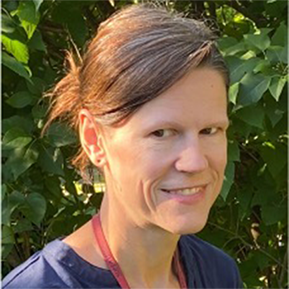
Jennifer Lochner, MD
Associate Editor
Jennifer Lochner, MD, is an associate professor in the University of Wisconsin–Madison (UW–Madison) Department of Family Medicine and Community Health. She is the clinical service chief for UW–Madison’s family medicine residency teaching clinics as well as a knowledge assessment consultant for the American Board of Family Medicine. Her expertise is in physician compensation, physician electronic health record workload, clinician burnout, and clinical operations. She obtained her MD at the UW–Madison and completed her residency training at Oregon Health & Science University.
-

Daniel Parente, MD, PhD
Associate Editor
Daniel Parente, MD, PhD, serves as an assistant professor in the Department of Family Medicine and Community Health at the University of Kansas Medical Center (KUMC). He also holds the position of research director for the KUMC Family Medicine Residency Program. Dr Parente is a Fellow of the American Academy of Family Physicians and is board-certified by the American Board of Family Medicine (ABFM). He is also recognized by ABFM with a Designation of Focused Practice in Hospital Medicine. Dr Parente has an avid interest in engaging resident physicians and medical students in the primary care research process and is passionate about teaching them about critical assessment of scientific literature. His research explores the use of advanced technologies—such as artificial intelligence (AI) and machine learning (ML)—in conjunction with multivariable methods, to enhance the quality of primary care and further medical education.
-

Meaghan Ruddy, PhD
Associate Editor
Meaghan Ruddy, PhD, is the chief research and development officer and senior vice president of academic affairs, enterprise assessment, and advancement at The Wright Centers for Graduate Medical Education and Community Health. She is also an adjunct clinical faculty at the A.T. Still University School of Osteopathic Medicine in Arizona and holds board positions on the National Association of Community Health Centers Committee on Health Center Excellence and Training, Health Resources and Services Administration (HRSA) Rural Health Peer Advisory Team, HRSA Community-based Training Peer Team, among others. Her expertise is in clinical ethics and bioethics, transformative learning theory, qualitative research, human development, and health center programming. Her current work focuses on teaching health center community benefit and developing trauma-informed organizations. She obtained her PhD at Marywood University.
-

Sara Shields, MD
Associate Editor
Sara Shields, MD, is a professor of family medicine and community health at the University of Massachusetts (UMass) Chan Medical School, the director of inpatient perinatal services at UMass Memorial Hospital, and a family physician at the Family Health Center of Worcester. Her expertise is in maternal and child health and women’s health, with special focus on normal labor, breastfeeding, and group prenatal care, as well as the humanities, including visual arts and reflective writing. She is the chair of the Worcester Healthy Baby Collaborative, a coalition of local community groups and health providers working to reduce infant mortality receiving grants from the March of Dimes, local agencies, and the National Network of Libraries in Medicine. She completed her MD at the University of California–San Francisco, her family medicine residency at the Highland Hospital–University of Rochester Medical Center, and a fellowship in maternal and child health at Brown University.
Editorial Board
Sommer Aldulaimi, MD, University of Arizona
Kendall Campbell, MD, University of Texas Medical Branch, Galveston
Annie Derthick, PhD, Central Maine Medical Center FMR, Lewiston, ME
Edgar Figueroa, MD, MPH, Weill Cornell Medical College of Cornell University
Joseph Gravel, Jr, MD, Medical College of Wisconsin
David Henderson, MD, University of Connecticut
Joyce Hollander-Rodriguez, MD, Oregon Health & Science University
Mark Huntington, MD, PhD, Center for Family Medicine FMR, Sioux Falls, SD
Jody Lounsbery, PharmD, University of Minnesota
Thomas O'Neill, PhD, American Board of Family Medicine
Fareedat Oluyadi, MD, University of North Carolina
Jose Rodriguez, MD, University of Utah
Jeanette South-Paul, MD, University of Pittsburgh
Harry Strothers, MD, MMM, Mercer University
Bill Ventres, MD, University of Arkansas
Stephen Wilson, MD, MPH, Boston Medical Center, Boston, MA
Richard Young, MD, John Peter Smith FMR, Fort Worth, TX
Previous Editors-in-Chief
Lynn Carmichael, MD
John Frey, MD
Barry Weiss, MD
John Saultz, MD
Policies
Peer Review Process
Submissions are initially reviewed for compliance to manuscript preparation guidelines. Compliant manuscripts are then assessed by the editor in chief, who makes an initial editorial decision. Some manuscripts are immediately rejected or given feedback directly from the editor. Most submissions are assigned by the editor in chief to one of the associate editors, who then assign and coordinate peer review. A minimum of two peer reviewers are assigned to each compliant submission, and author revisions are typically needed as a result of reviewer comments. Family Medicine uses a single-blind peer review process for all submissions (authors do not know the identity of reviewers, but reviewers do know the identity of authors). When reviewer feedback has been addressed to the satisfaction of the associate editor, the associate editor makes a recommendation to the editor in chief, who makes the final determination regarding publication. Some final revisions may be requested at the time of acceptance by the editor in chief.
Use of Artificial Intelligence
Family Medicine encourages authors to appropriately use technology throughout the research process. Software that uses generative artificial intelligence (AI) or machine learning (ML) may be used. Family Medicine, however, only allows humans to be listed as authors of original articles. Software programs (eg, ChatGPT) cannot be listed as authors. Human authors must take public responsibility for the scientific integrity and originality of their work. Authors are also responsible for ensuring that their articles are free from plagiarism and bias.
Disclosure of the use of artificial intelligence and machine learning software is required by Family Medicine in certain circumstances:
- When generative artificial intelligence is used to aid in the drafting parts of a manuscript (eg, to generate text, to create tables, to create figures, etc), this must be disclosed in the Acknowledgments section of the manuscript (eg, “The authors used ChatGPT to create Table 1.”)
- When generative artificial intelligence (eg, ChatGPT) is used as part of the analytical methods for an article, authors should clearly state this within the Methods section, and explain steps taken to ensure the validity of those analyses. For example, if ChatGPT was used to transform unstructured data into a more structured format, the authors should describe this process (prompts, preprocessing, postprocessing, validation, etc) as they would any other analytical or statistical procedure.
- When artificial intelligence is used incidentally in other aspects of the research process authors do not need to disclose this fact, unless such use is relevant to the meaning or interpretation of an article. For example, informal use of AI to aid in conducting a literature search for a simple survey project would not require disclosure, but formal use of AI tools to determine which articles to include in a systemic review would require disclosure.
Human Subject Recruitment and Informed Consent
Family Medicine submissions for any study involving human subjects must describe the following:
- Institutional Review Board (IRB) interactions
- Consent processes
- Participation incentives
- Recruitment procedures, description of outreach, etc.
Study subjects’ identifying information should never be included in manuscript text or accompanying materials (eg, figures, tables, appendices) unless it is essential for purpose of the study and the subjects have given written informed consent for publication. In any case where subjects’ identifying information is included in a submission, the corresponding author may be asked to provide documentation of informed consent.
Ethical Responsibilities of Editors and Reviewers
Family Medicine editors and reviewers must not disclose or discuss unpublished materials in a submitted manuscript with anyone other than the corresponding author, reviewers, or members of the Family Medicine editorial team. Family Medicine reviewers are expected to declare their conflicts of interest and recuse themselves from the peer-review process if a conflict exists for a manuscript they have been invited to review. Reviewers and associate editors are expected and encouraged to notify the editor in chief of suspected plagiarism, duplicate publication, and ethical concerns such as conflicts of interest among authors. Details regarding reviewer expectations and duties are outlined on this page: https://journals.stfm.org/familymedicine/reviewers/
Corrections, Retractions, and Expressions of Concern
If a substantive error is identified in a published article, the editor in chief and associate editors will decide whether to publish a formal correction, retraction, or expression of concern statement, or initiate a published discussion via letters to the editor. Substantive errors are confirmed errors that significantly affect the integrity of the publication or the interpretation of its results (eg, falsified, fabricated, or omitted data; plagiarism; undisclosed conflicts of interest). In such rare cases, a new document will be published in Family Medicine describing the nature of the error, and will provide a link back to the published article containing the error. A prominent corresponding link to the error statement will be added to the article containing the error. In the rare event of a retraction, a prominent mark and statement will be added to the the published article identifying it as retracted, in addition to the link to the editorial retraction statement. For errors that are disputed or pending further investigation, the Family Medicine editors reserve the right to determine whether they will be handled by a series of letters to the editor and subsequent author replies, or by the publication of an expression of concern letter, linked to the article in question in the same manner as corrections/retractions.
Copyright and Permissions
Prior to publication, all authors are required to sign a copyright release form, transferring copyright to the Society of Teachers of Family Medicine (STFM).
Unless otherwise noted, all Family Medicine content is copyrighted by STFM, and may not be reproduced without the written permission of STFM. If you would like to reproduce, reprint, or adapt material from Family Medicine for purposes other than nonprofit educational purposes, you must seek permission from the Society of Teachers of Family Medicine. A permission fee is charged when material is to be used in another form of publication (eg, newsletter, textbook, manual, journal/magazine, etc). The fee will be determined once request has been reviewed.
Advertising Guidelines
Family Medicine does accept advertisements for its journal, Family Medicine, according to STFM advertising principles.
These advertising principles are applied by the Society of Teachers of Family Medicine (STFM) to ensure adherence to the highest ethical standards of advertising and to determine the eligibility of products and services for advertising in the STFM digital publications. Advertising revenue is used to support the activities of STFM.
As a matter of policy, the STFM will sell advertising space in its publications when the inclusion of advertising does not interfere with the mission or objectives of STFM or its publications. To maintain the integrity of STFM publications, advertising (ie, promotional material, advertising representatives, companies, or manufacturers) cannot influence editorial decisions or editorial content. Decisions to sell advertising space are made independently of and without information pertinent to specific editorial content. STFM publications’ advertising sales representatives have no prior knowledge of specific editorial content before it is published. Placement of advertising adjacent to (ie, next to or within) editorial content on the same topic is prohibited. Complete policy details, including a list of advertising types that are and are not acceptable, can be found here (pdf).
Diversity Statement
Family Medicine is committed to advancing efforts towards inclusion and antiracism in all journal-related activities. We endeavor to take the following actions to eliminate bias and racism in our editorial processes:
- Authors: We encourage authorship from people of diverse backgrounds, particularly authors from minoritized groups (ie, underrepresented minority - URM) and historically excluded groups. Authors are encouraged to acknowledge and address systemic and structural problems identified in their work to advance diversity, equity, inclusion, and antiracism (DEIA) efforts.
- Content: We encourage submission of manuscripts with person or population centered DEIA content. We encourage submission of work that moves beyond DEIA education and documentation of disparities to improving equity in health, education, physician advancement and other areas.
- Process: Submissions with DEIA content may be selected for further review by the DEIA associate editor whose focus is to promote inclusion and antiracism in the editorial process. We endeavor to increase peer reviewers with expertise in DEIA content.
- Reflection: The editorial team will engage in discussions of historical and emerging social justice issues to ensure journal content reflects the evolving needs and experiences of physicians, learners and patients. We endeavor to increase individual understanding, self-reflection and commitment to change practices that contribute to bias and racism.
- Collaboration: Our editorial team will work alongside other peer reviewed journals in effort to intentionally critique and update our practices to advance inclusive and antiracist policies.
- Language: We will regularly review and update guidance for authors and editors on the use of inclusive and culturally sensitive language in medical and science journals. We encourage authors to avoid labeling or stereotyping groups or populations based on opinions or bias.
Permissions Requests
Academic Use
Family Medicine has partnered with the Copyright Clearance Center to provide a web-based permission service. If you would like to reuse material from Family Medicine for nonprofit educational classroom use, visit the Copyright Clearance Center and enter "Family Medicine" when asked for publication title to obtain permission to reuse copyrighted materials.
Other Uses
If you would like to reproduce, reprint, or adapt material from Family Medicine for other purposes (apart from photocopying patient information handouts for nonprofit educational purposes), you must seek permission from the Society of Teachers of Family Medicine. Email your permission request to fmjournal@stfm.org.
Required on All Permission Requests
About the material you would like to use:
- Title of article/piece you want to use
- Name of author of material
- Name of publication
- Identify content (for example, do you want to use the entire article, only a table/figure, an illustration); provide a sample if possible
About your proposed use:
- Title of your publication, program or product
- Name of publisher or sponsor
- Type/format of publication in which the content will appear (eg, newsletter, book, periodical, CD-ROM, website, ebook)
- Estimated number of copies to be printed or produced
- Whether the copies will be sold or free
Permission Fees
A permission fee is charged when material is to be used in another form of a publication (eg, newsletter, textbook, manual, journal/magazine, etc). The fee depends on the amount of content being reprinted and will be determined once request has been reviewed. Payment should be made in US currency and must be received before permission is granted.
Contact Us
Editorial and Publishing Office
Family Medicine
11400 Tomahawk Creek Parkway
Suite 240
Leawood, KS, 66211
Phone: 800-274-7928 or 913-906-6000
Editorial Team Fax: 913-800-5675
Editorial Team Email: fmeditor@stfm.org
Publishing Team Fax: 913-906-6096
Publishing Team Email: fmjournal@stfm.org
Managing Publisher: Traci Brazelton, CAE, Society of Teachers of Family Medicine
Publications Manager: Sam Grammer, Society of Teachers of Family Medicine
Subscribe
Family Medicine is published on a monthly basis; combined issues are published in July-August and November-December. Family Medicine is sent electronically to all current STFM members at no additional charge and nonmembers can subscribe for free by registering at here.
Order Print Copies of Back Issues
Print copies of back issues from 2021 through 2022 (Volumes 53 and 54) may be available for purchase at a cost of $25 each. To purchase a single issue of the journal from those years, email Sam Grammer.
Questions?
Contact Sam Grammer at 913-800-5649, fax: 913-906-6096, fmjournal@stfm.org.
Advertising Information
Classified and Display Advertising Opportunities
Family Medicine offers an employment and display advertising opportunities online at Family Medicine Careers.
Maximize your reach to qualified candidates with Family Medicine Careers digital advertising opportunities. Promote your organization and job openings for family medicine educators and researchers on our recently updated online job board. Explore the rates and posting options.
Mulltiple digital plans are available along with additional branding opportunities. Contact the Family Medicine Careers representatives, Web Scribble, at (877) 414-7381 to develop the perfect customized package to meet your advertising needs and deliver you great candidates.
Advertising Guidelines
Family Medicine does accept advertisements for its journal, Family Medicine, according to STFM advertising principles.
These advertising principles are applied by the Society of Teachers of Family Medicine (STFM) to ensure adherence to the highest ethical standards of advertising and to determine the eligibility of products and services for advertising in the STFM digital publications. Advertising revenue is used to support the activities of STFM.
As a matter of policy, the STFM will sell advertising space in its publications when the inclusion of advertising does not interfere with the mission or objectives of STFM or its publications. To maintain the integrity of STFM publications, advertising (ie, promotional material, advertising representatives, companies, or manufacturers) cannot influence editorial decisions or editorial content. Decisions to sell advertising space are made independently of and without information pertinent to specific editorial content. STFM publications’ advertising sales representatives have no prior knowledge of specific editorial content before it is published. Placement of advertising adjacent to (ie, next to or within) editorial content on the same topic is prohibited. Complete policy details, including a list of advertising types that are and are not acceptable, can be found here (pdf).
Family Medicine Readership
Family Medicine's 5,000 subscribers include more than 4,700 members of the Society of Teachers of Family Medicine. These STFM members are leaders within the primary care medical community—department chairs, residency program directors, predoctoral directors, and others—comprising an elite group of teaching physicians and faculty who create policies within today's medical community and influence the decision makers of tomorrow. Family medicine educators turn to STFM for the latest educational research and resources, faculty development workshops, and management skill training.
Our members not only teach—influencing the residents and students who will become future family physicians—but also see patients, just like other family physicians. According to a recent membership survey, on average, our members spend about a third of their time seeing patients. Some members devote even more time to clinical activities. Here are some of the product categories these physician-educators are seeking more information about:
- Books: Family physicians are a prime market in the current medical environment. In many cases, STFM members are the decision makers who determine which textbooks to use in their courses. Additionally, many of these physicians are the authors of the family medicine books and journal articles. Our audience is a medical publisher’s dream market!
- Conferences: Our journal is read by an audience dedicated to the value of continuing education, and one that is likely to attend, as well as spread the word to other faculty and residents about valuable conferences.
- Medical and Practice Software: Many of our members in community and university settings and use electronic health record software, billing software, and other point of care tools.
- Other Business Services: Other services and products that go with business ownership, along with products and services specific to family physicians and family medicine educators, such as insurance and annuity plans, managed care company programs, and medical equipment.
- Pharmaceuticals: The educators of future family physicians are highly regarded as role models with tremendous influence over residents and medical students. Educating the educators about your products will provide a downstream benefit for you during this critical time when trainees are developing future prescribing habits.

